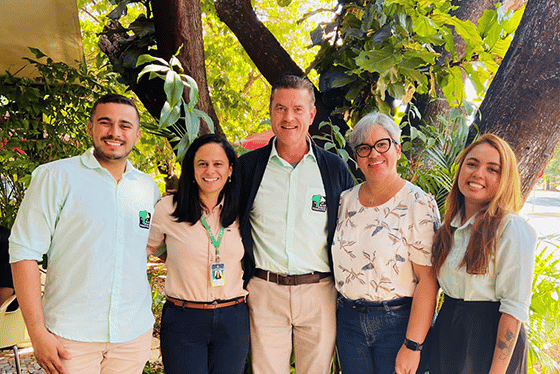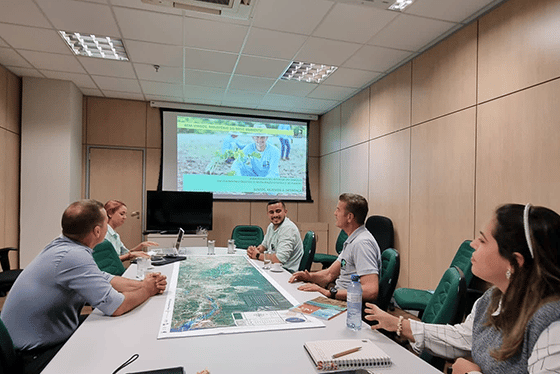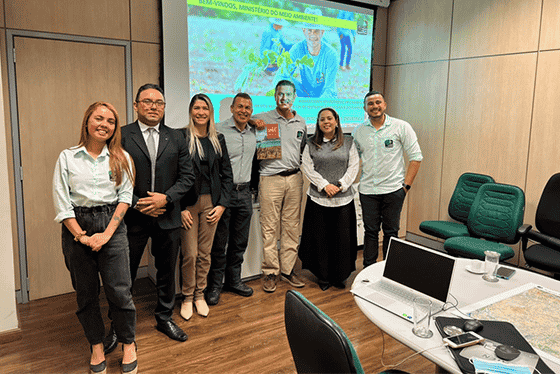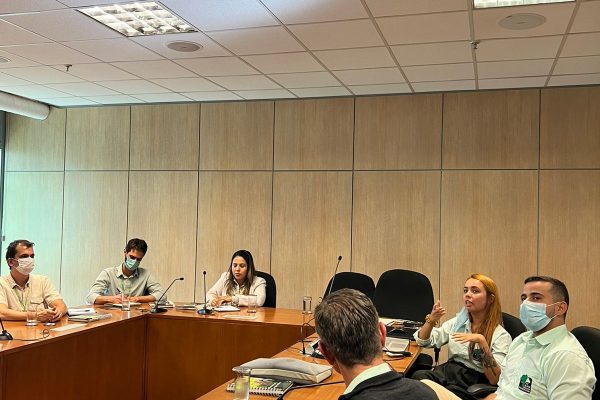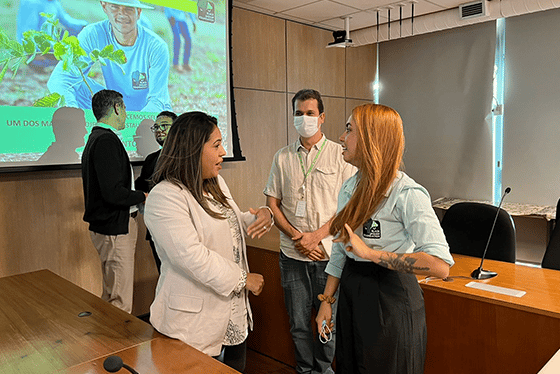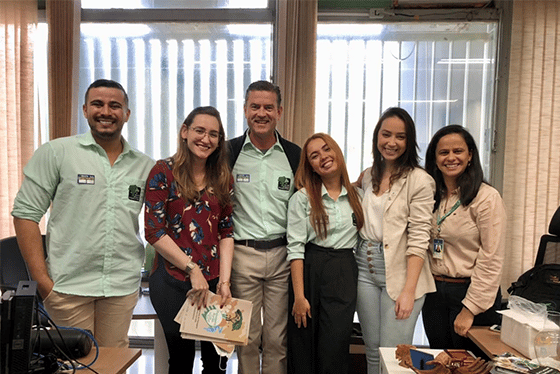Last month, our team had the opportunity to present the Araguaia Biodiversity Corridor to the Brazilian Ministry of Environment’s technical team, building new partnerships to support our work of ecological restoration. This visit also consisted of meetings with other departments of the Ministry of Environment, including the Department of Protected Areas, and the president of Instituto Chico Mendes de Conservação da Biodiversidade.
During our visit, we were also invited to meet with the Brazilian Ministry of Agriculture. We discussed how the BJF can best support the Ministry of Agriculture’s projects moving forward, with a focus on our contributions to “Paisagens Rurais no Cerrado” (Rural Landscapes in the Cerrado Savana), in the municipalities in Para, Tocantins and Mato Grosso that fall within the Araguaia Biodiversity Corridor.
These new partnerships will be instrumental in raising more land for us to plant on in the 23/24 planting season!
Paisagens rurais do Cerrado
The Black Jaguar Foundation started collaborating on the Project “Paisagens rurais do Cerrado” with our partner Serviço Florestal Brasileiro in 2021.
The project, coordinated by the Brazilian department of Agriculture (MAPA), is supported by many different organisations including the Black Jaguar Foundation and focusses on incentivising the integrated management of rural properties. To make this a reality, it provides technical assistance to rural landowners in the project regions.
The Black Jaguar Foundation has been working together with Serviço Florestal Brasileiro (SFE) on the restoration of Permanent Preservation Areas (APPs) and Legal Reserves (RLs) in the Cerrado Biome, in collaboration with rural landowners in the region
Future benefits
Providing technical assistance in ecological restoration ensures healthy ecosystems, increases agricultural productivity, and creates new employment opportunities!
This will enable rural producers to develop the economic, social, and environmental aspects of their properties.

